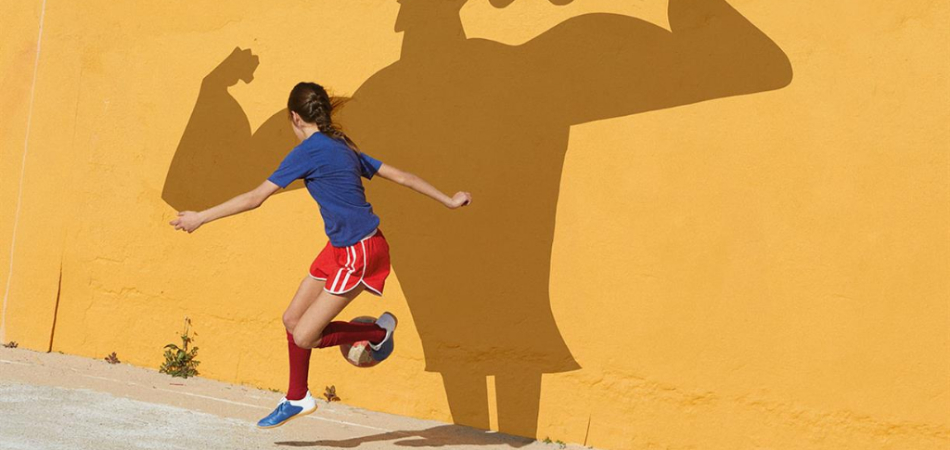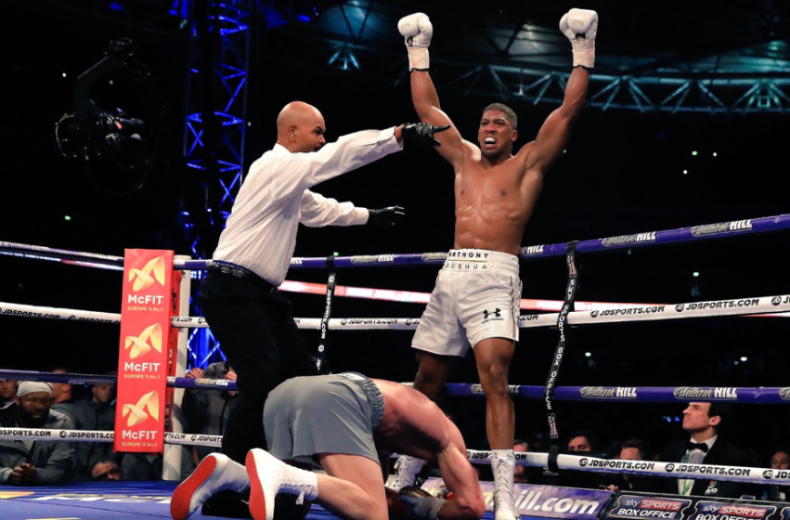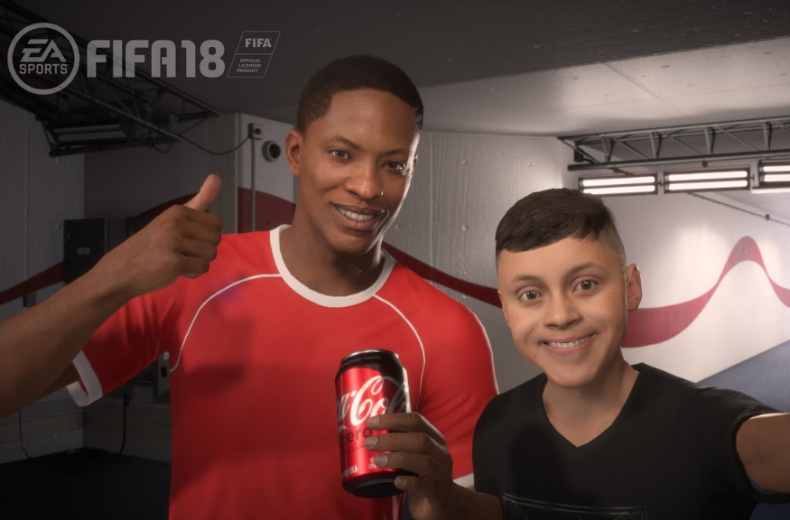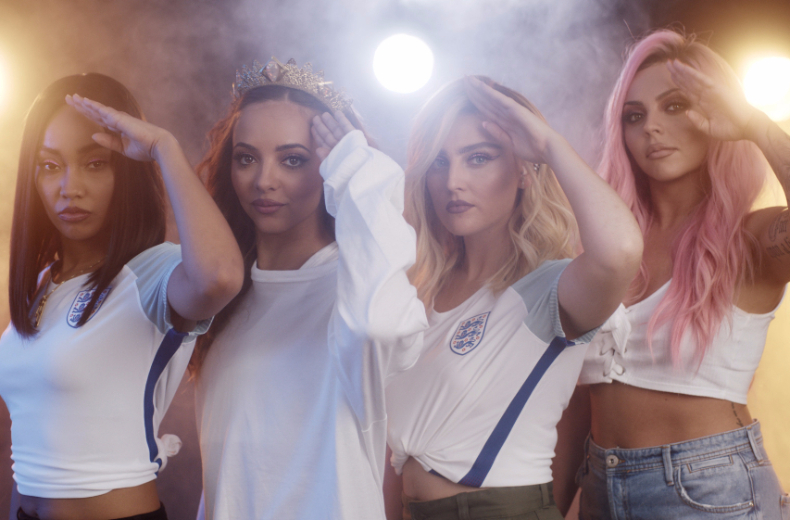
Gen Z and Gen Alpha want brands that understand their passions
Understanding where young audiences spend their time is helpful but understanding passions forms deeper brand audience relationships.
The unifying nature of sport creates an incomparable platform for brands, especially as the avenues through which we watch it grow, shift and change. In 2017 the sports market was estimated to be worth around $700billion.


Sport is universally, passionately and emotionally unifying. Whether its cramped around a TV watching the Wimbledon final, supporting kids from the side line or pushing with a cycling team up the last steep hill-climb of that seemingly unconquerable mountain, sport plays a part in many of our lives.
The unifying nature of sport creates an incomparable platform for brands, especially as the avenues through which we watch it grow, shift and change. In 2017 the sports market was estimated to be worth around $700billion.
It’s the live element of sport that social media platforms have capitalised on. Facebook, Twitter, Instagram and Snapchat all allow for both branded and fan-based live streaming, putting the power to watch and comment on the action into the hands of the fans.
The conversations happening online while the game is going on are now as important, if not more so, than the game itself. This is a marked change in consumer behaviour as technology replicates the experience of actually being at a sporting event.
Below we’ve picked out some of the trends prevalent within sports marketing and the brands successfully navigating the continuously shifting landscape.

According to a 2015 report from Accenture, 87% of consumers use more than one device at a time. This behaviour is especially prominent in when it comes to watching sport. This multi-screen action allows brands to be part of the fan conversation and provide content to fuel it.
An award-winning campaign which tapped into this behavioural trend was Under Armour’s work with Droga5 New York, #BREAKTHEGAME. They focused on the unmatchable ability of the basketball player Stephen Curry and the online chatter that surfaced during his games. Every time Curry scored a 3-point shot, a 3 second ad was played on Twitter. Under Armour took over the online conversation by dominating the second screen experience.
Havas Cake worked with Beats by Dr Dre to own the multi-screen moment around Anthony Joshua’s heavyweight fight against Wladamir Klitschko at Wembley in April last year. On fight night, they created Beats Media House to generate real-time engagement with fans, ensuring that they appeared across every screen they would be watching on. In the lead up to the game the brand built up momentum by ensuring it was visible at key moments, with Joshua wearing Beats headphones during his weigh in and press conferences.
According to We Are Social, 75% of all social referrals are made on the dark web. This is where users share content through private channels like WhatsApp and Facebook Messenger. These platforms are being used by millions of people around the world but are difficult for brands to create successful and profitable campaigns on owing to their seemingly un-trackable nature.
adidas’ Tango Squad has found a way to break into this unchartered space. Orchestrated over a bespoke Facebook Messenger group, the squad is made up of 1,440 football obsessed teenagers in 15 cities across 11 countries. The Squad is sent exclusive content, news and experiences directly to the group, information they could then share with their friends. It’s an influencer network built for the future generation, from the ground up.

Where once video games posed a threat to real time football matches, today eSports players are almost as in demand as the club players themselves. When FIFA launched in 1994, it was quite simply a video game. But now it has become a platform from which professional clubs and brands can speak to an otherwise difficult to reach but incredibly loyal audience, predominantly made up of men aged between 21 and 35.
At the end of last year, Coca-Cola announced their latest brand signing, Alex Hunter, a virtual football player and invention of EA Sports. Specifically created for FIFA 17 his storyline has progressed as the game has, with FIFA 18 seeing him make a major comeback after getting booed off the pitch at the end of last season. The partnership with Coke gives eSports players a detailed insight into what brand endorsement for a real-world player entails. Players watch Hunter work on the filming of the spot within FIFA which will then be used by Coke in the real world to promote amongst other things, its sponsorship of the 2018 FIFA World Cup.
What of the ordinary people who simply adore sport? These are the people driven by their passion that want to feel empowered. Brands are moving from featuring celebrities at the heart of campaigns to creating meaningful moments for ordinary sporting fans and enthusiasts.
2018 marks the 30th year of partnership between adidas and the Boston Athletic Association. So, for this year’s Boston Marathon on 16th April, the brand has promised to create 30,000 unique marathon videos for each of the 30,000 individual runners taking part. They will deliver the videos, in partnership with Grow, within hours of the race finishing. These highlight reels will be set to an inspiring soundtrack and each runner will be encouraged to share their content on their social channels. The Here to Create Legend campaign acknowledges that on the day of a marathon, ordinary legends will be made extraordinary.
Sometimes it’s not the biggest events which generate the greatest excitement. Now it is all about the power of the grassroot game, the nitty gritty reality of what sport is really like for those who choose to commit week in week out because they love it. Sport welcomes you into a tribe and can give you a real sense of belonging.
This focus on the tribe is at the heart of FCB Inferno’s work with UEFA, #WePlayStrong, which looks to change the perception of women’s football across Europe. Knowing that team sports give players confidence, the campaign’s aim was to encourage teenage girls of every shape, size and nationality to make football the most played women’s sport across Europe within 5 years. It was optimised on the very platforms that the teenage girls were already using, reminding us that football can be about so much more than just the game.
The influence for those at grassroots level doesn’t come in the form of a celebrity or famous sports star. It is the coach who’s out every Saturday morning or the housemate that drags you out of bed for a run. It can even be the stranger standing next to you in the gym, forcing you to push yourself further in silent competition. This community spirit forms the setting for Grey’s campaign with Lucozade, Made to Move, that reflects the brand’s goal to get one million people moving by 2020. The opening TV slot, set against the backdrop of one of London’s biggest estates, portrays the epic diversity of grassroots sport from BMX bikers to urban runners and a gang of perfectly insync boxers.

Sport provides brands with an influential platform from which to tell innumerable, colourful stories. It also allows individuals as well as the brands themselves to challenge stereotypical gender roles.
The idea of fearless power was channelled by Pitch in their work with the FA, Little Mix X Lionesses. Ahead of the UEFA Women’s Euro last year, the FA were looking to raise the profile of women’s football, specifically appealing to their target audience of 8-16-year-old girls. These are the next generation of Lionesses, as the England’s women team are so known. Fronted by Little Mix, who provided the campaign song, Salute the Lionesses championed the fierce strength of our national women’s football team. And by asking the nation to salute the team, galvanised the support of fans across the country.
Wieden+Kennedy teamed up with Nike and the Royal Dutch Football Association to tweak the country’s royal crest, turning lion into lioness for the Netherlands Women’s National Team kit. The change comes to mark the team’s nickname of the ‘Oranje Leeuwinnen’ or Orange Lionesses, inspiring players to unite behind the symbol with pride and to “wear what we are”.
Looks like you need to create a Creativebrief account to perform this action.
Create account Sign inLooks like you need to create a Creativebrief account to perform this action.
Create account Sign in